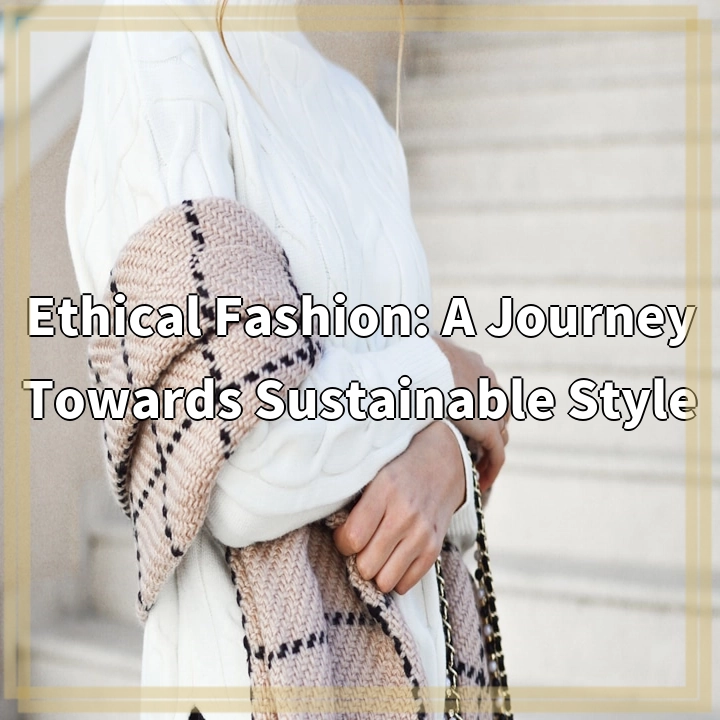
What it is:
Ethical fashion refers to a movement within the clothing industry that prioritizes social, environmental, and economic sustainability. It encompasses a wide range of practices aimed at reducing the negative impacts of fashion on people and the planet. This includes ensuring fair labor practices, using sustainable materials, and promoting transparency in the supply chain.
At its core, ethical fashion seeks to challenge the fast fashion model that has dominated the industry, which often leads to overconsumption, environmental degradation, and exploitation of workers. By focusing on quality over quantity, ethical fashion brands encourage consumers to make more conscious purchasing decisions. This movement fosters an appreciation for timeless, well-made clothing that lasts, rather than disposable items designed for short-term use.
Real-World Problems:
Labor Exploitation
One of the most pressing issues within the fashion industry is labor exploitation. Many garment workers, particularly in developing countries, are subjected to poor working conditions, long hours, and inadequate wages. Ethical fashion aims to address this by promoting fair trade practices and ensuring that workers receive just compensation for their labor.
Environmental Impact
The production of clothing has a significant environmental impact. Fast fashion brands often rely on synthetic materials that are non-biodegradable and require vast amounts of resources, such as water and energy, for production. Ethical fashion promotes the use of sustainable materials, such as organic cotton, hemp, and recycled fabrics, to minimize environmental harm.
Waste and Overconsumption
The fast fashion model encourages a culture of overconsumption, resulting in enormous amounts of textile waste. It is estimated that millions of tons of clothing end up in landfills each year. Ethical fashion advocates for more sustainable consumption patterns, including thrift shopping, upcycling, and investing in quality pieces that have longevity.
Consumer Awareness and Education
Lack of awareness among consumers regarding the true costs of their clothing is another hurdle for the ethical fashion movement. Many shoppers are unaware of the negative consequences their choices can have on the environment and the people who make their clothes. Ethical fashion brands focus on educating consumers about the importance of mindful shopping and the impact of their choices on the planet.
Greenwashing
As the demand for sustainable and ethical products grows, some brands engage in “greenwashing,” where they falsely portray themselves as environmentally friendly to attract eco-conscious consumers. This can undermine the genuine efforts of ethical fashion brands and make it challenging for consumers to identify truly sustainable options. Transparency and accountability are vital to combating greenwashing in the industry.

Solutions to Ethical Fashion Challenges
Promoting Fair Labor Practices
Supporting ethical fashion brands that ensure fair wages and safe working conditions for garment workers is crucial. Advocating for fair trade certifications can also help consumers identify brands that prioritize ethical labor practices.
Adopting Sustainable Materials
Encouraging the use of sustainable fabrics, such as organic cotton, linen, and recycled materials, can significantly reduce the environmental impact of clothing production. Brands can be urged to source materials responsibly and minimize waste through eco-friendly manufacturing processes.
Embracing a Circular Economy
Promoting a circular economy in fashion involves encouraging practices like recycling, upcycling, and repairing garments. Consumers can be educated on the importance of purchasing second-hand clothing and participating in clothing swaps to prolong the life cycle of apparel.
Enhancing Consumer Education
Raising awareness about the implications of fast fashion can help consumers make informed choices. Ethical fashion brands can utilize storytelling, campaigns, and social media to educate shoppers about the benefits of sustainable practices and the impact of their purchasing behavior.
Fostering Transparency and Accountability
Brands should strive for transparency in their supply chains by openly sharing information about sourcing, production practices, and labor standards. This accountability builds trust with consumers and allows them to make choices aligned with their values.
Combating Greenwashing
Consumers can be encouraged to research brands thoroughly and support those genuinely committed to sustainability rather than those merely portraying themselves as eco-friendly. Certifications, third-party audits, and transparent communications can be indicators of a brand’s authenticity.















